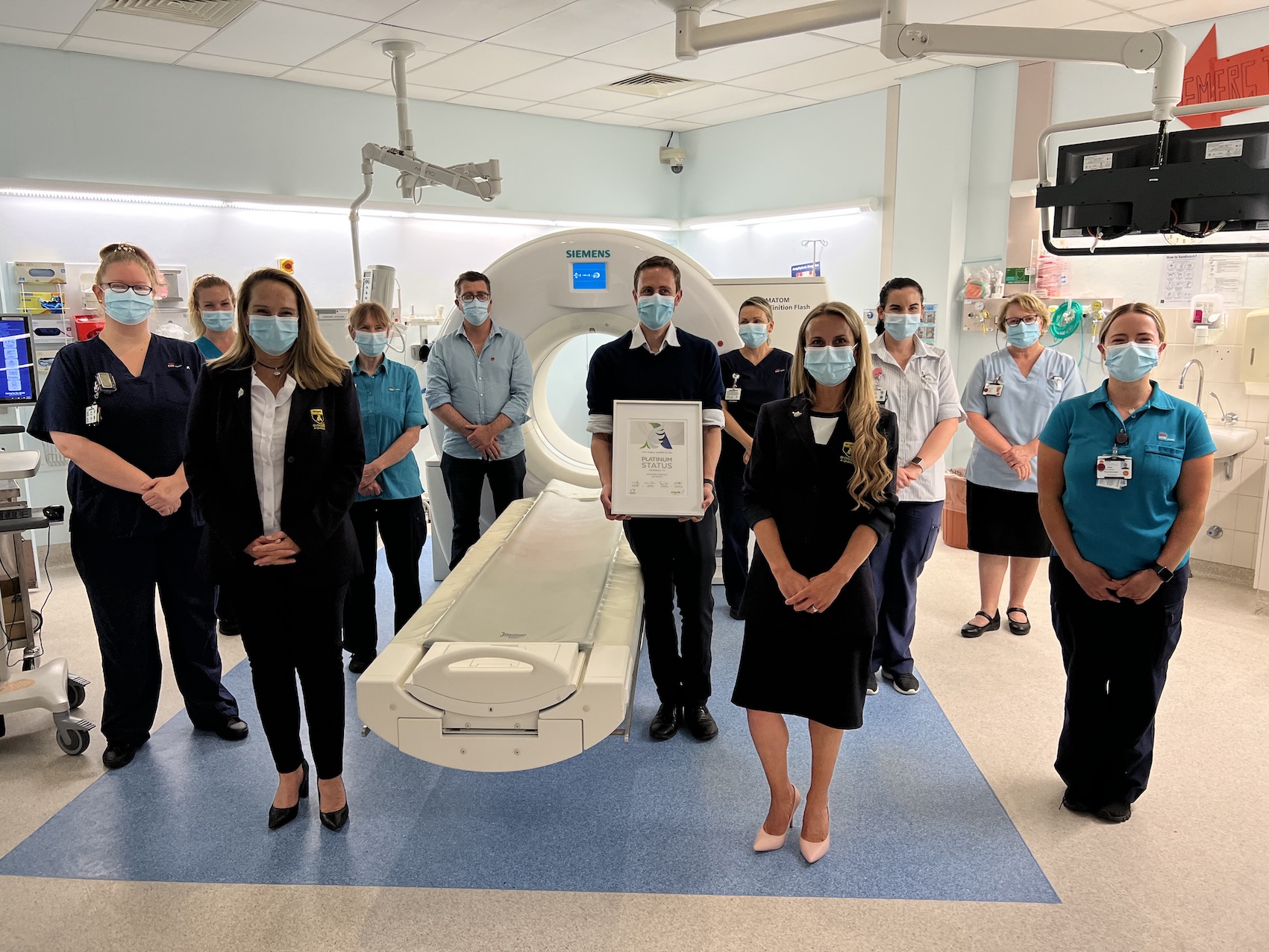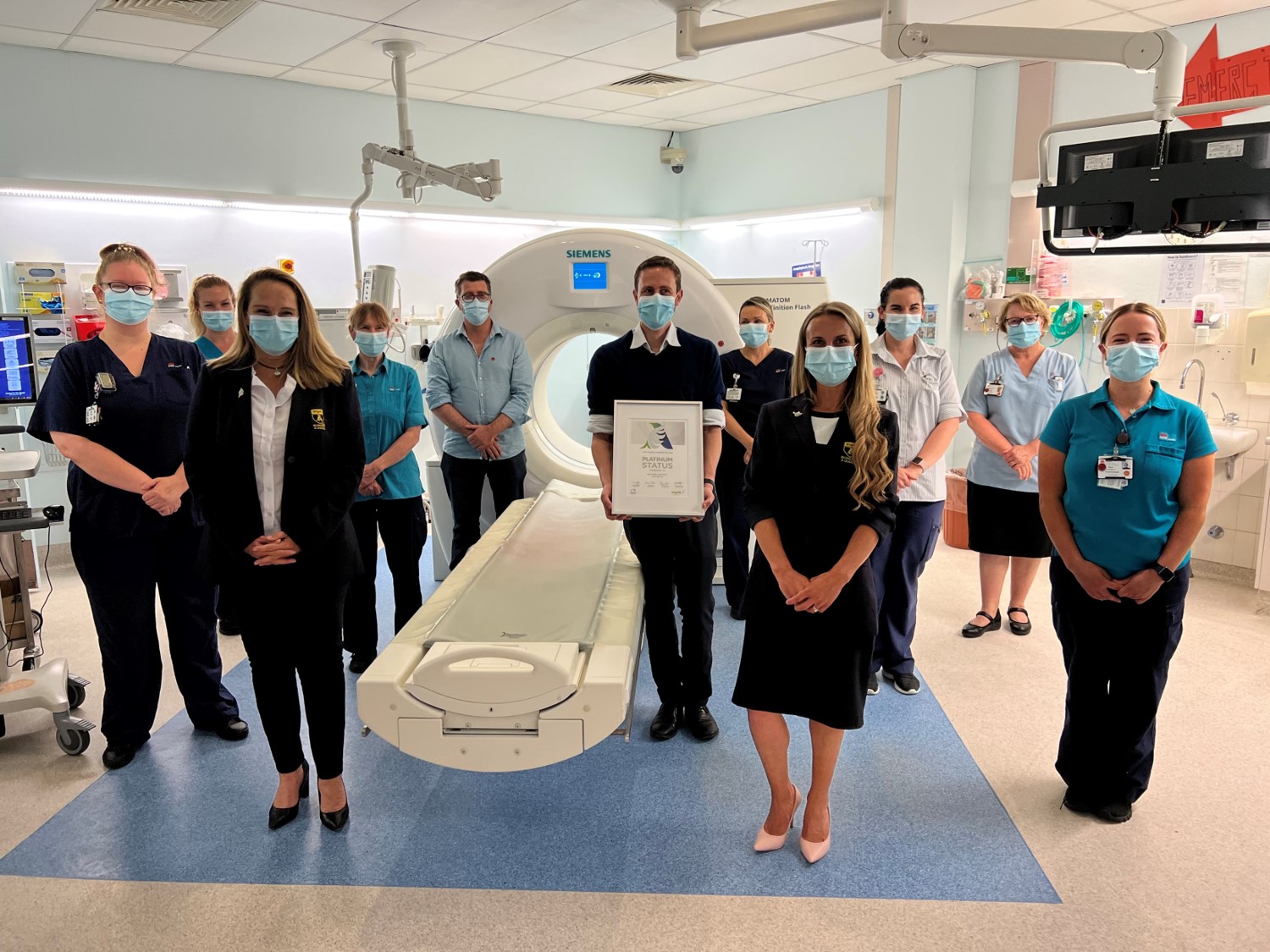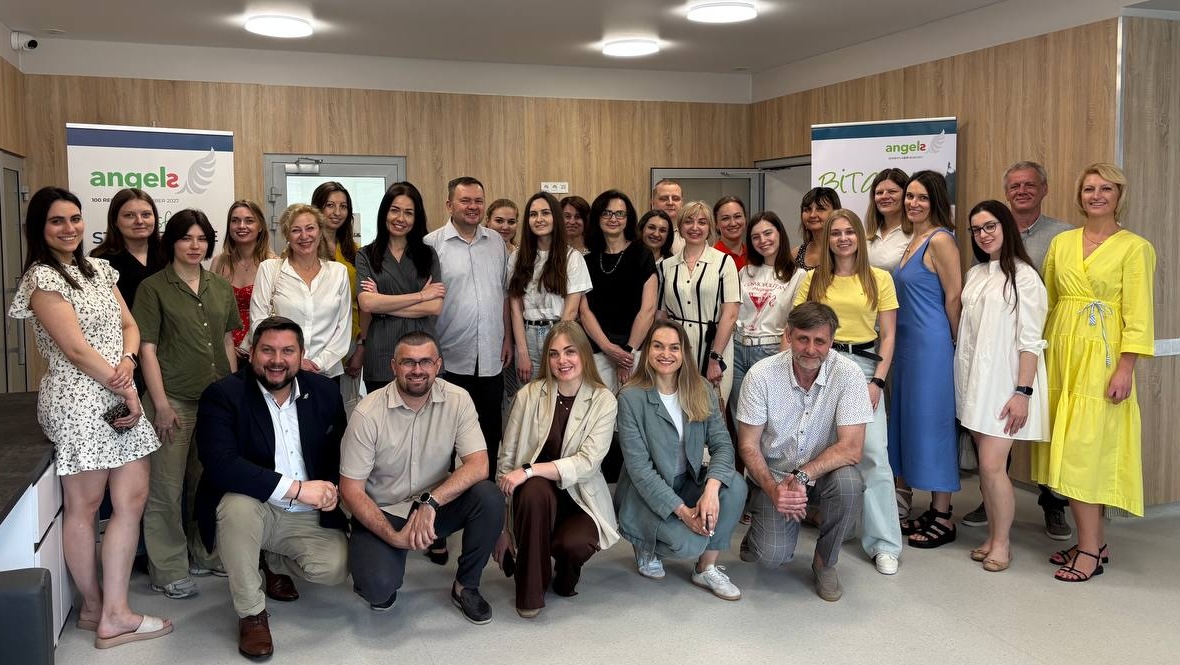O Gosford Hospital na Austrália reduziu o seu tempo porta-a-agulha em quase 50% em 18 meses. Falámos com a equipa de AVC para compreender que medidas tomaram para melhorar os seus processos.
 O Hospital de Gosford foi um dos cinco destinatários merecedores de um prémio WSO Angels em 2021, atingindo platina para cumprir elevados padrões no tratamento e cuidados de AVC agudo. É um dos três hospitais na Austrália que alcançou o estatuto de platina.
O Hospital de Gosford foi um dos cinco destinatários merecedores de um prémio WSO Angels em 2021, atingindo platina para cumprir elevados padrões no tratamento e cuidados de AVC agudo. É um dos três hospitais na Austrália que alcançou o estatuto de platina.
O Hospital de Gosford trata cerca de 550 doentes com AVC por ano, sendo que até 100 destes são AVC hemorrágico. O líder de AVC do hospital, o Dr. James Evans, disse que o Prémio WSO Angels foi o reconhecimento pela abordagem da equipa tomada para melhorar os cuidados de AVC na área local e a sua utilização de dados para melhorar continuamente.
“Estamos empenhados em melhorar continuamente os padrões de cuidados de AVC”, disse a Dra. Evans.
“A nossa abordagem centrada no doente envolve toda a equipa – o serviço de urgências, TC, a equipa de neurologia, incluindo médicos, enfermeiros, fisioterapeutas, terapeutas ocupacionais, trabalho social, farmacêuticos e equipa de reabilitação. Significa que todos estão focados em melhorar os cuidados prestados aos doentes.”
“Temos um painel de informações que monitorizamos diariamente, permitindo-nos observar toda a viagem de um doente, desde a emergência até à recuperação e reabilitação.”
A equipa de AVC intensificou o seu foco em melhorar os cuidados de AVC há dois anos e desde então alcançou dois prémios WSO (Gold e Platinum).
Nesse período, a equipa diminuiu o seu tempo porta-a-agulha em cerca de 50% nos últimos 18 meses, o que é uma conquista extraordinária.
O Dr. Bill O’Brien, que é neurologista no Gosford Hospital há 10 anos, disse aBrain Matters que o prémio foi o resultado de anos de trabalho árduo.
“Passámos anos a criar e a aperfeiçoar uma equipa multidisciplinar verdadeiramente integrada; uma em que todos são igualmente valorizados e o foco na recolha de dados ao vivo para alcançar os melhores resultados de práticas para os nossos doentes”, disse o Dr. O’Brien.”
“É fantástico ver todo esse trabalho árduo reconhecido através de não um, mas dois prémios globais.”
O hospital obteve resultados excecionais ao desenvolver um protocolo para rever o seu desempenho para cada chamada de AVC. Recolhe os dados de cada caso para revisão.
A equipa realiza duas reuniões multidisciplinares (EMD) por semana, incluindo os oficiais de ambulância que participam em cada doente, e analisa cada caso de AVC em detalhe como um exercício de aprendizagem.
O Dr. O’Brien disse: “Não temos bons momentos aleatoriamente. É fundamental analisar quanto tempo demora cada passo do processo, desde a pré-notificação até ao tratamento, e porque demora esse tempo, e a partir daí discutir formas de melhorarmos esses tempos no futuro.”



